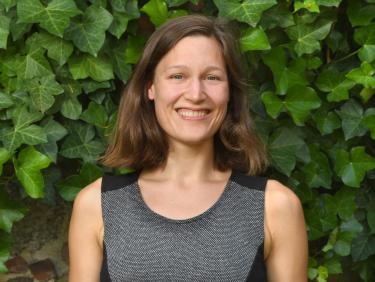Testimonials My Conference Attendance in Lausanne
After her Bachelor’s degree in Biology at Freie Universität Berlin and a Master’s degree in Medical Neurosciences at Charité – Universitätsmedizin Berlin, Annika worked for various organisations in Germany and abroad (mostly Germany and Kenya) for about for years. There, she discovered her passion for Digital Mental Health, especially regarding global health. The different perspectives (from start-up to international organisation, from venture capital company to NGO) that she was able to discover finally led to her decission to start a doctorate in the department of Public Mental Health at the Central Institute of Mental Health (ZI) supervised by Ulrich Reininghaus.

Why did dou decide to do your doctorate at Heidelberg University?
Three aspects were decisive:
- I was positively impressed by my supervisor and his research.
- The very good research opportunities in my field. There is no other place in Germany where I could cover all of my interests so well: from neuroscience to apps and from Public to Global Health.
- The excellent reputation of the various institutes, the Central Institute of Mental Health as wells as the Heidelberg Institute of Global Health, with which we collaborate.
Mit welchem Thema befassen Sie sich in Ihrer Forschung?
In my doctorate, I am working on Ecological Momentary Interventions. These are app-based interventions that are supposed to support those affected in their everyday lives with mini-interventions designed to help in specific contexts and moments. I am focusing on young persons (14-25) who are having difficulties with emotion regulation. To be more specific, I am developing an app, neurofEMI, together with persons affected as part of my doctorate. This app, in combincation with neurofeedback – a method that can help to learn sucessful self-regulation strategies thanks to a feedback on ones own neural acitivies – is intended to help to improve how one deals with emotions in everyday life. In my research, I apply methods of the human-centered design and evaluate, after development, indications of the effectiveness of individual app components with the help of a micro-randomised trial. In addition to this, I am also doing a project in which I an looking at cultural adaptation of an existing intervention to improve the emotion regulation of young people in Kenya and Tanzania.
How did the funded trip help you with your research project?
At the Conference on Early Intervention in Mentahl Health, I was was able to present a poster in the field of intervention design for global mental health as well as give a talk on the study design oft he neurofEMI research project. This allowed me to get helpful feedback which I was able to use fort he next steps of the projects. Besides, I could attend many interesting presentations which gave my a good overview of the current challenges and ideas in my field of research. In a nutshell, it was a great opportunity to get in touch with important internationl researchers.
What does the funding from the Young Researchers Fund mean to you?
With the support from the Young Researchers Fund, I would not have been able to attednd the IEPA conference. As my doctorate is funded by a scholarship and this does not cover travel expenses, I had to rely on external funding since I was not able to covert he costs of travel, accommodation and meals myself. I am grateful tot he Young Researchers Fund for the support and I think it is awesome that such an initiative exists at Heidelberg University!
What are your plans for your time after your doctorate?
I am still not quite sure what I want to do after my doctorate. I am thinking about maybe founding my own start-up in the field of digital mental health – maybe even based on my doctoral project. I could also imagine working for a large interational organisation in my field, e.g. the WHO. Additionally, I would also like to still be a part of science.
As of February 2024
Links
My Research Sojourn in Maine, USA
Lisa studied pharmacy at the University of Erlangen-Nuremberg. After having completed her practical year in the hospital pharmacy of the University Hospital Munich as well as in a public pharmacy and having obtained her licensure, she started her doctorate at the Chair of Pharmaceutical Technology and Biopharmacy at Heidelberg University. Currently, she is doing research regarding ABS transports in the kidney and supervising the laboratory practicals of pharmacy students.




